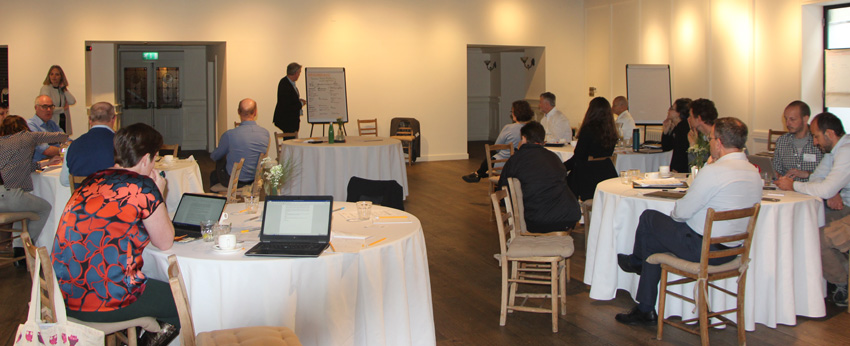
blog
How do you write a strategic research agenda?
Our Strategic Research Agenda for Oceans and Human Health has just been published. But how, you might ask, do you go about writing a strategic research agenda?
The strategic research agenda (SRA) focuses on three themes, and these were defined over two workshops by our SOPHIE Expert Group . The details and content of the SRA were informed by all of the other project activities and results from the SOPHIE project. The SRA was reviewed by the project partners and the Expert Group.
It all sounds quite straightforward when you put it like that, but as we found, the reality is rather different.
To begin with, the range of topics that fall within the remit of oceans and human health (OHH), on that interface between marine science and public health, social science and medicine, well-being and industry, is vast. In order to write an SRA that would be meaningful and implementable, we had to narrow down to just a handful of topics that we could discuss in detail.
In our first Expert Group workshop in April 2018, the conversations and ideas were wide-ranging and by the end of it, we had all realized that we needed to be far more strategic in our approach.

Members of the Expert Group discuss early ideas for the SRA.
So, during the summer of 2018, we mapped OHH. We defined challenges and opportunities, indicators and needs for both oceans and human health, for each of the different topics. We ended up with a very large and very complicated set of tables, but also some clarity.
For our SRA we wanted topics that truly spanned both ocean and human health aspects in equal measure, not a focus that was a marine issue with a tangential link to humans. We wanted areas that could not be addressed without integration and trans-disciplinary collaboration.
This took us into the second Expert Group workshop in January 2019 with a much clearer task; narrow down the remaining list to three key topics and elaborate research questions that can be meaningfully progressed by 2030. To do that, we used the wide range of knowledge within the Expert Group to make sure different viewpoints and priorities were reflected.

Discussions at the Helsinki workshop for Baltic Sea stakeholders.
That gave us our three topics, yet clearly these topics alone do not define OHH; they are only the beginning. Now we could start creating the agenda. For that, we looked at the results of all of the other activities within the SOPHIE project.
Perhaps just as important as the direct results of the activities were what we learnt from doing them. The various tasks of the SOPHIE project included engagement with over 15,000 Europeans from all walks of life, over 150 of those in person.
It turns out that as a project, we were not just defining how to lay the foundations for an OHH community; we were already becoming that community. We were actively developing and engaging in those collaborations that lie at the heart of the research agenda, and we were already finding out what that means in practice.
OHH stakeholders come from a wide range of different backgrounds, have different priorities and perspectives, and even different languages. It takes time for trust to develop in these relationships, and for everyone’s perspectives to be understood but it is important that this process is given the time to happen. As we elaborated the SRA, we didn’t just include our project results, we also included our own experiences and what we had learnt from the process.
The SRA we published in March 2020 is more than just a list of research questions and timelines. It highlights what different stakeholders think about the topics, what this implies for policy, and what we need to do to ensure the availability of appropriate training opportunities and enable collaboration in OHH. It highlights what we learnt as a growing OHH community about what it means to work across boundaries.
So how do you go about writing a strategic research agenda defining the key research questions for OHH in Europe? I think the answer is together.
Related content
- News
- 3 April 2020
Catch up on the SOPHIE conference
Over 240 participants tuned into the launch of our strategic research agenda for oceans and human health. You can catch up on all the content here.
SRA Toolkit
We’ve created this toolkit to help you use the messages, recommendations and resources provided by the SRA, to share with your networks and potential funders. Scroll down for translated versions.
Strategic Research Agenda
The SOPHIE Strategic Research Agenda is a comprehensive overview of the required research and capacity to develop Oceans and Human Health in Europe.
Stakeholder Discussions
Listening to people from across Europe to define future oceans and human health research priorities.